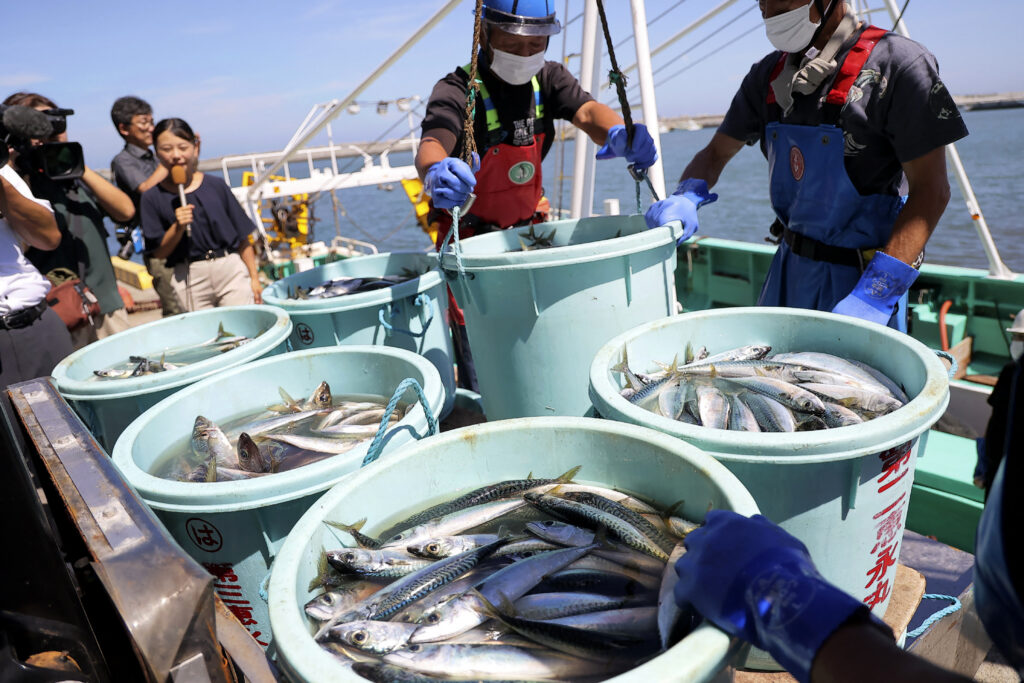
- ARAB NEWS
- 31 Jul 2025

ZHOUSHAN: China is keeping its door tightly shut to Japanese fishery products after imposing an import ban a year ago in protest against the discharge of treated water into the sea from a crippled nuclear power plant in Japan.
Despite Tokyo’s repeated assurances that the procedure is safe, Chinese officials still refer to the treated water, which contains small amounts of radioactive tritium, as “nuclear-contaminated water.”
Tokyo and Beijing are in talks over the issue but there are no clues yet as to how the situation could be resolved.
In a meeting with Japanese Foreign Minister KAMIKAWA Yoko late last month, Chinese Foreign Minister Wang Yi reiterated Beijing’s demand that an international system to monitor the water release be established.
China imposed the blanket ban on fishery products from Japan on Aug. 24 last year immediately after the Fukushima No. 1 nuclear power plant started releasing treated water.
Chinese trade statistics show that no fishery products, except aquarium fish, have been imported from Japan since September last year.
Restaurants in China have been forced to procure ingredients from other countries.
A Japanese restaurant in Beijing switched from Japanese tuna to Spanish tuna after the import ban. Because it now has new procurement sources, the restaurant is not sure whether it will use Japanese tuna again even if the ban is lifted.
The water release has also triggered a boycott of Japanese products in China, sending sales of Japanese food and cosmetic products tumbling.
A senior official at a Japanese food company in Beijing said there were periods during which clients did not display its products on their store shelves.
There have been cases in which customs officials have rejected sweets and drinks imported from Japan or demanded additional procedures for imports from Japan.
The Japanese food company’s sales in China have yet to return to normal levels. “The situation remains tough,” the food company official said.
The impact of the import ban has spread further than Beijing had anticipated.
A woman in her 40s in Beijing said she has not eaten marine products for a long while.
Chinese fishery products have suffered reputational damage. Fishermen have complained online about the negative impact, such as sharp falls in income.
Shoppers were few in number at a seafood market in Zhoushan in the eastern province of Zhejiang, home to China’s largest fishing port.
The number of domestic tourists visiting the city in the first three months of this year rose 8.8 percent from a year before, far below the national average.
Beijing has said seafood sold in China is safe because strict radiation inspections are conducted in China.
But a dealer in fishery products in Zhoushan said that the ocean is connected. It is illogical that Japanese products are dangerous and Chinese products are safe, the dealer said.
In China, experts’ views that the treated water would reach the Chinese coast as early as this spring spread in state media and on social media.
A male resident of Zhoushan questioned the government’s strict response to the treated water release. Someone has made too much of a fuss in China, he said.
The fishing season started at the Zhoushan fishing port this month but fewer boats are leaving the port than last year.
A fisherman said some of his colleagues are already out of work. Everyone is having a hard time, but there is no specific support from the government, the fisherman said.
JIJI Press